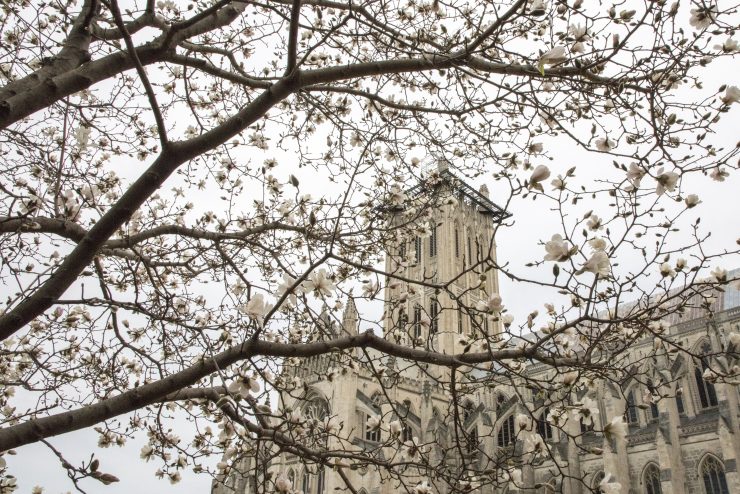Can You See?

Luke 16: 19-31
“There was a rich man who was dressed in purple and fine linen and who feasted sumptuously every day. And at his gate lay a poor man named Lazarus, covered with sores, who longed to satisfy his hunger with what fell from the rich man’s table; even the dogs would come and lick his sores. The poor man died and was carried away by the angels to be with Abraham. The rich man also died and was buried. In Hades, where he was being tormented, he lifted up his eyes and saw Abraham far away with Lazarus by his side. He called out, ‘Father Abraham, have mercy on me, and send Lazarus to dip the tip of his finger in water and cool my tongue, for I am in agony in these flames.’ But Abraham said, ‘Child, remember that during your lifetime you received your good things and Lazarus in like manner evil things, but now he is comforted here, and you are in agony. Besides all this, between you and us a great chasm has been fixed, so that those who might want to pass from here to you cannot do so, and no one can cross from there to us.’ He said, ‘Then I beg you, father, to send him to my father’s house—for I have five siblings—that he may warn them, so that they will not also come into this place of torment.’ Abraham replied, ‘They have Moses and the prophets; they should listen to them.’ He said, ‘No, father Abraham, but if someone from the dead goes to them, they will repent.’ He said to him, ‘If they do not listen to Moses and the prophets, neither will they be convinced even if someone rises from the dead.’”
Have you ever found yourself unable to see? Perhaps creeping into the dark room of a sleeping child, narrowly avoiding stepping on toys or books strewn on the floor. Or walking down the stairs of a basement, or even in a cave, choosing to turn off battery powered lights to be immersed in inky darkness.
What about those times we are unable to see what’s in front of us, even when it’s in plain sight? It happens all the time in my house with the detritus of living—piles of books, stacks of letters, or anything I place on the stairs for a family member.
What about when we can’t see what’s truly important, even when we’ve been given help?
In our passage today, the rich man is blind to Lazarus, the poor man who lay at his gate. As one commentary notes, “Often there was a bench outside homes where the poor could wait for assistance. A beggar who sat on this bench at the gate could expect some sort of attention, especially from a feasting host and guests.” 1
The rich man was blind to the plight of Lazarus and others like him.
There is so much in our world to be awake to: systemic racism, horrific wars, climate change, natural disasters, pandemics and epidemics. And that doesn’t even begin to cover what each of us individually is facing.
It is easy to become overwhelmed and suffer from compassion fatigue, and it can paralyze us. To combat it, I’m reminded of the phrase “Think globally, act locally.”
That’s what the rich man missed. As a person of means, he was tasked to care for those in need. In specific, to tend to those right outside his gate. He couldn’t see.
How do we open our eyes? How do we take up the task of caring for others?
Allow a difficult situation from the world to enter your mind and hold it before you. Feel the pain of those involved. What does their life look like? What might they be feeling?
Though we are not able to heal the world, we can extend our love and care. Imagine a person from your situation sitting outside your door.
How can you stop and offer them hope and healing? How can you make what you see in your mind’s eye a reality for even one person? For by doing that, you are doing the work of the Gospel. Amen.
prayer
In you, gracious God,
the widowed find a carer,
the orphaned find a parent,
the fearful find a friend.
In you,
the wounded find a healer,
the penitent find a pardoner,
the burdened find a counselor.
In you,
the miserly find a beggar,
the despondent find a laughter-maker,
the legalists find a rule-breaker.
In you, Jesus Christ,
we meet our Maker,
and our match.
And if some need to say, “Help me”
and if some need to say, “Save me”
and if some need to say, “Hold me”
and if some need to say, “Forgive me”
then let these be said now
in confidence
by us.
O Christ,
in whose heart is both welcome and warning,
say to us,
do to us,
reveal within us
the things that will make us whole.
And we will wait;
and we will praise you.
Amen.
—From A Wee Worship Book from the Wild Goose Worship Group